The COVID-19 pandemic slammed the brakes on global travel and tourism. Suddenly, the world’s favourite playgrounds—airports, hotels, and tourist spots—went quiet. Borders shut down, and vacations vanished. This wasn’t just a pause; it was a major economic hit. Businesses that relied on tourists struggled, and many people lost their jobs. Travel changed too. We started wanting safer, closer-to-home trips. Now, travel is slowly coming back, but it’s different. We’re doing more online booking and focusing on cleaner, safer experiences. Basically, the pandemic shook up the whole travel world, and things aren’t quite the same as they were before.
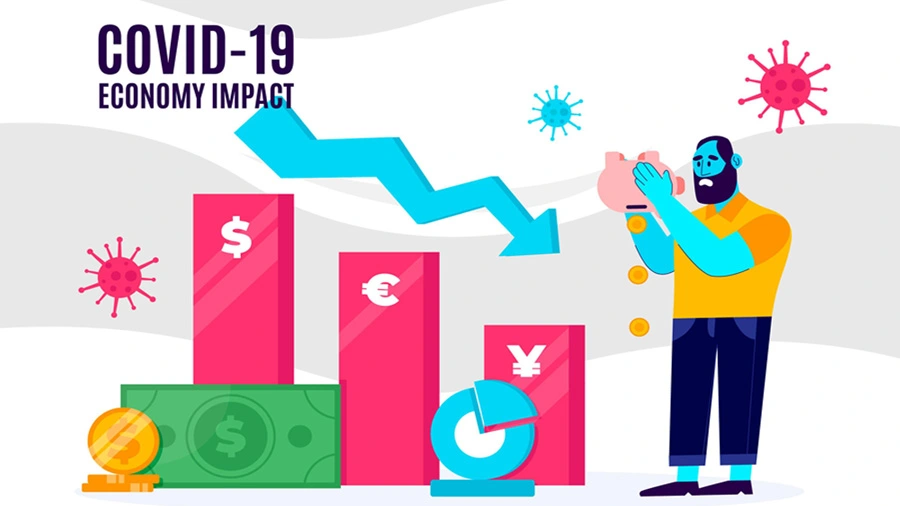
Travel Transformed: Post-COVID World
Imagine the world’s vacation spots suddenly closing down. That’s what happened to travel during the pandemic. Planes stopped, borders shut, and places that were always busy became empty.
It was a tough time, but it also made travel change. People started thinking differently about trips, and travel companies had to come up with new ideas. It’s not just about going back to how things were; it’s about making travel better for the future.
Let’s talk about how the pandemic changed travel forever. We’ll look at how people want to travel now, the problems travel businesses faced, and what the future might look like. Whether you travel a lot or just dream about it, knowing these changes will help you understand how travel works now.
The Rise and Fall of Global Travel and Tourism
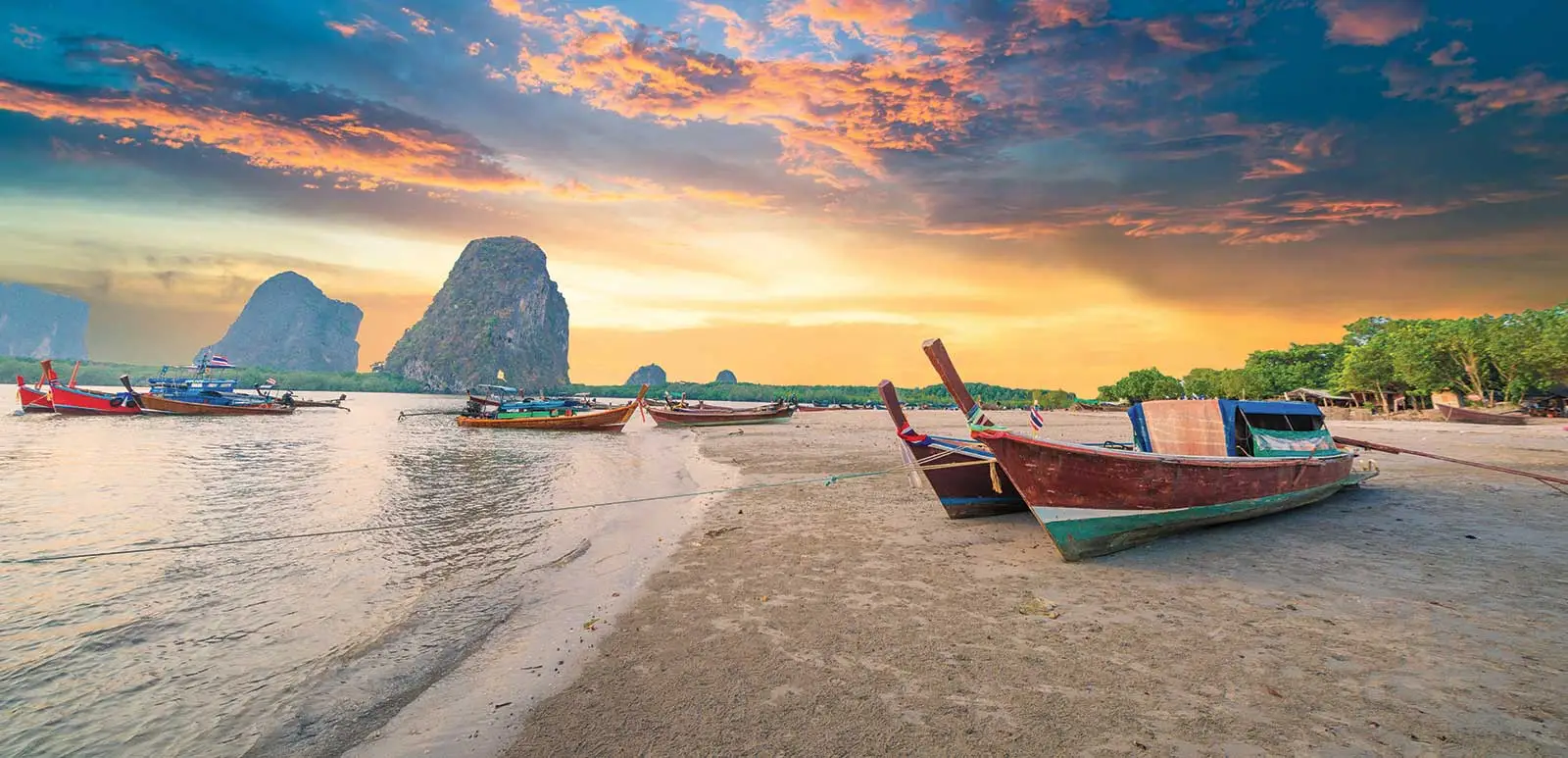
Before, travel was awesome! Everyone was traveling, seeing the world, and countries made lots of money from tourists.
Then, BAM! The pandemic hit. Everything stopped. Planes stayed on the ground, and borders closed. Airports became empty.
Travel businesses got really hurt. Hotels closed, tour companies went out of business, and people became scared to travel.
But, people didn’t give up. Travel companies started getting creative. They tried new things to stay afloat and figure out what people wanted in this new world. Basically, even though things were really tough, the travel industry started to find ways to adapt and keep going.
Changes in Consumer Behaviour and Preferences
1. First of all, Travel Anxiety:
- Basically, there’s more fear now. People are more scared of getting sick while traveling, and worry about germs and crowds.
- Consequently, everyone plans trips way more carefully. They check if places are clean and safe.
- As a result, some people are just too anxious to travel at all, even when they can.
- Therefore, travel companies need to show people they’re taking safety seriously.
2. Furthermore, the Desire for Meaningful Experiences:
- In other words, people want real travel, not just touristy stuff. They want to do things that really matter, not just see the usual sights.
- Also, they want to connect with locals. They want to meet local people, learn about their lives, and help their businesses.
- Moreover, some people want to travel with a purpose. They want to volunteer, help the environment, or learn about different cultures.
- Ultimately, travel is seen as a way to grow as a person. It’s a way to learn about yourself and become a better person.
3. Finally, the Role of Travel in Mental Well-Being:
- Indeed, travel helps people relax and forget about their worries. It leads to less stress and more relaxation.
- Additionally, seeing new places can help you feel refreshed and think differently. It’s a fresh start for your mind.
- Plus, travel helps people connect with others, which is important for feeling good. It fights isolation.
- Of course, the feeling of going on a trip makes people happy and creates good memories. It’s fun and exciting.
- In addition, travel can help people recover from the stress and bad feelings caused by the pandemic. It aids in healing.
Challenges Faced by the Industry
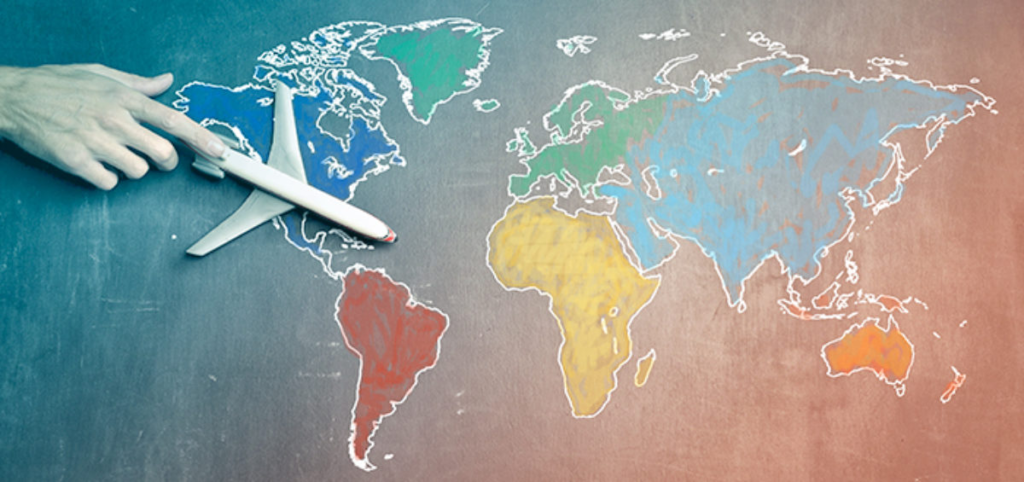
The Pandemic Really Messed Up Travel:
1. First, borders closed everywhere. Basically, countries stopped people from coming in, so travel almost stopped completely. This left tourists stuck and airlines in big trouble.
2. Then, businesses had to change how they worked. For example, hotels had fewer guests and had to clean a lot more. This meant they lost money and many people lost their jobs.
3. Also, people got scared to travel. So, they cared more about being safe than having fancy vacations. Because of this, travel companies had to change what they offered.
4. On top of that, rules kept changing. Therefore, it was hard for people to plan trips because they didn’t know what rules would be in place.
5. Finally, taking care of the planet took a backseat. In other words, focusing on things like eco-friendly travel was put on hold while everyone tried to survive financially. But, in the end, it might make sustainable travel even more important in the future.
How Travel Affects the Whole Economy
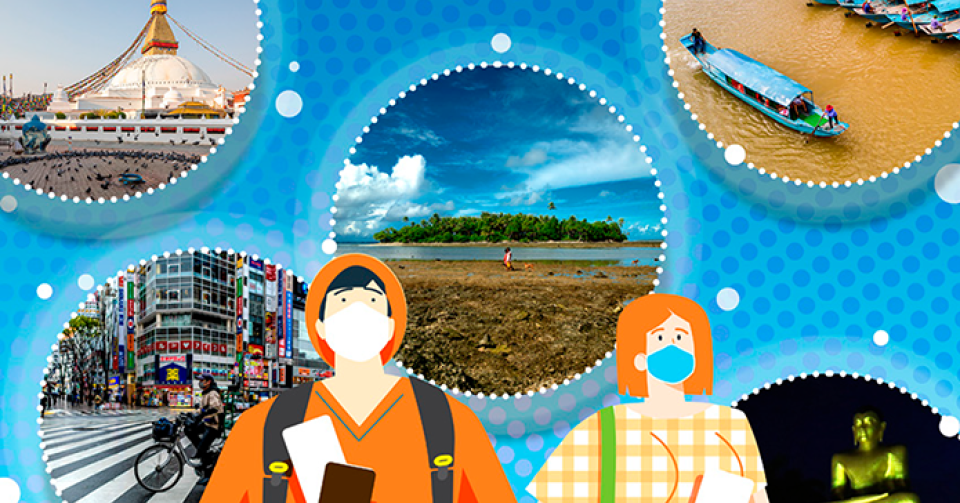
The Pandemic Didn’t Just Hurt Travel Companies, It Hurt Everyone Around Them:
1. Local Towns Got Really Poor:
- Places that relied on tourists lost all their money. Shops, restaurants, and tour guides had no customers.
- Small islands and beach towns were hit especially hard.
- The towns also lost money from taxes, so they couldn’t pay for things like roads and schools.
2. Lots of People Lost Their Jobs:
- Not just hotel and airline workers, but people in restaurants, shops, and even cleaning services.
- Places that sold souvenirs or food to tourists had to close down.
- Even people who grew food for restaurants lost their jobs.
3. Other Businesses Also Got Hurt:
- Shops: Stores that sold things to tourists sold way less.
- Restaurants: Many restaurants and cafes had to close because they had no customers.
- Fun Places: Museums and theaters lost money because tourists weren’t there.
- Local Transportation: Taxis and buses had fewer riders.
- Farms: Less tourists means less need for food, hurting farmers.
Basically, when travel stopped, it was like a domino effect. One thing falling down made everything else fall too.
Strategies Adopted by Travel and Tourism Companies
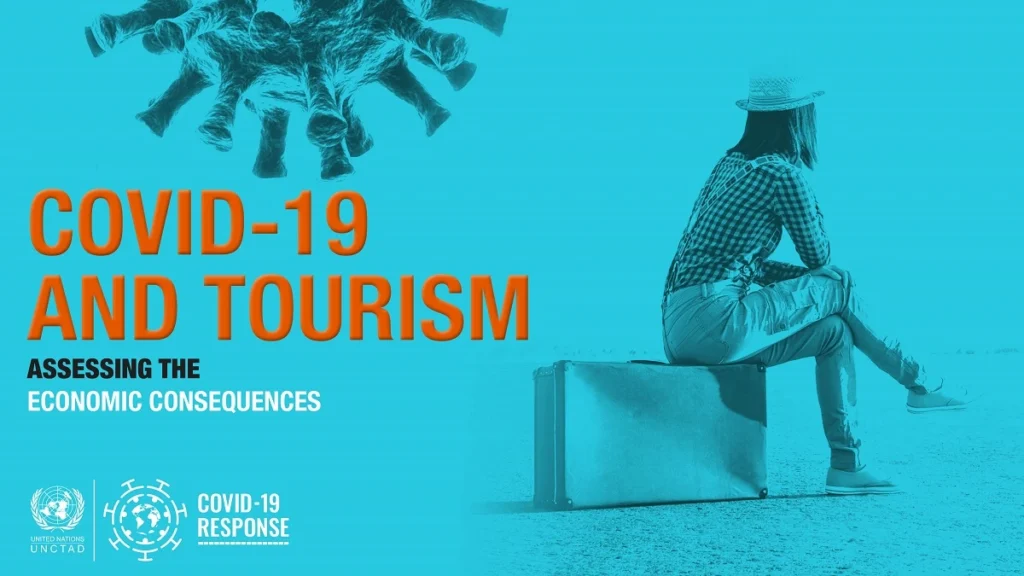
Travel’s Quick Changes: How It Adapted After the Pandemic
- Going Digital: Faster Online Changes– Because of the pandemic, travel companies had to use more technology. So, they made their websites and apps better quickly. They focused on making them easy to use, work on phones, and give personal choices. They also added online tours and maps. And, they used chat robots to help people quickly. And, they made it easier to pay and check in without touching anything.”
- Building Trust: Easy Changes and Confidence – Travel companies knew people were worried, so they made it easy to change or cancel trips. They gave refunds or credits if COVID-19 messed up plans. They also offered ‘book now, pay later’ and insurance for pandemic problems. This helped people trust them and book trips.”
- Keeping People Safe: Clean and Healthy – Travel places cleaned everything really well. They followed health rules from everywhere. They also told people clearly about safety rules, like masks and social distancing. To make people feel safe, they got ‘clean and safe’ stickers and worked with health groups.
- Green Travel: Helping the Planet – The pandemic made people think more about the environment. So, they wanted travel that didn’t hurt the planet. Travel companies started offering green hotels and trips that help animals and local people. They also tried to use less waste and be good to the planet.
- Working Together: Helping Local Areas – Travel companies worked with local shops and businesses. This helped local areas make money again. They also worked with local guides and artists to give travelers real experiences. Plus, they helped local groups and communities.
- Finding New Travelers: Trips Near Home – Travel companies started showing trips near people’s homes. This was because people couldn’t travel far. They also offered ‘work and travel’ trips for people who work from anywhere. Social media helped show safe and fun trips. And, they made online tours so people could explore from home
Future Outlook for the Industry
Travel is starting to come back slowly. As more people get shots, many places are opening up again. This gives hope to travel businesses.
But, how people travel has changed and will probably stay this way. People want trips that are safe, easy, and flexible. More people want to travel in ways that help the planet and local people.
Technology will be a big part of travel now. Things like checking in without touching anything, seeing places online, and better phone apps will change how we travel.
Airlines and hotels need to change too. They need to focus on keeping things clean and offer new things like trips where you can work or relax.
Even though there are still problems, travel businesses are strong and can find new ways to grow and change after the pandemic.”
Conclusion
The pandemic changed travel a lot. Indeed, businesses had to change quickly. Now, people want safer, greener trips. However, problems like border closures remain. Therefore, companies are using more online tools and better cleaning. Looking ahead, travel will be exciting, with a focus on wellness and sustainability. Ultimately, a strong travel industry can help the whole world’s economy.


